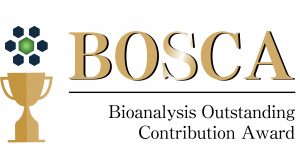The current status of single-cell proteomics for biomedical research
An update on the current status of single-cell proteomics as applied to human drug response and adaptation.
Single-cell proteomics has been a flashy new technology and approach for some years now. For the last 4 years, our group has endeavored to utilize single-cell proteomics to better understand how human cells respond to and adapt to drug treatments. This webinar will provide an overview of the challenges we’ve encountered, and some examples of where we’ve succeeded. We’ll begin with our controversial decision to use the instruments we had for multiplexed analysis and we’ll work through our even more controversial identification of protein post-translational modifications in single human cells. The final part of the webinar will focus on our work — and new challenges — in single cells derived from mouse models.
What will you learn?
- The basics of single-cell proteomics
- The current state of single-cell proteomics as of the date of this talk
- The challenges and triumphs of single-cell proteomics in human cells
- The ongoing work on single-cell mouse models
Who this may interest?
- Bioanalytical scientists interested in single-cell multi-omics or pharmacology
- Bioanalytical scientists in the field of proteomics/multi-omics
Speaker:
 Benjamin C. Orsburn
Benjamin C. Orsburn
Principal Investigator
Johns Hopkins University (MD, USA)
Ben is an established expert in translational mass spectrometry, most recently as a Principal Investigator at the Johns Hopkins University School of Medicine. His research is centered on applying high-throughput and single-cell proteomics/multi-omics as tools to understand heterogeneity in drug response and adaptation. He is best known for his attempts to make proteomics accessible to a wide audience through the News In Proteomics Research blog and the US Human Proteomics Organization-sponsored podcast, THE Proteomics show. Ben is also the winner of our 2023 of the BOSCA Award.
This webinar was recorded on the 21 August 2024.

